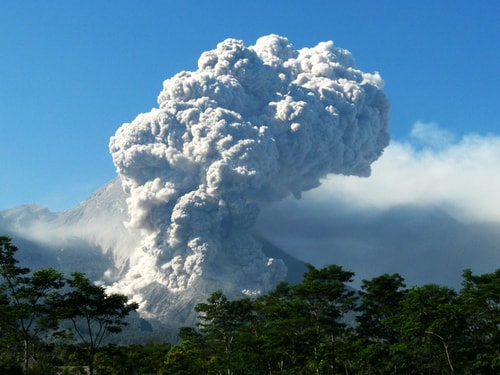Calbuco volcano erupted last week
By Diego Flammini, Farms.com
Farming is hard enough as it is with all of the variables farmers have no control over such as the weather and government rules and regulations.
Some farmers in Chile are dealing with an agricultural crisis after Calbuco volcano erupted last week after being silent since 1972.
As a result of the eruption, fish are dying because of volcanic ash in the water and pastures are now barren.
Due to the dangerous environments, cattle and sheep have been evacuated from Los Lagos – the region that produces most of the country’s milk. Last year it produced about 950 million litres of milk worth upwards of $346 million.
Chile, one of the world’s top salmon producers, is estimated to have lost about 20 million fish and more than 45,000 animals are still in danger because they are eating plants and drinking water that are contaminated with volcanic ash. The cloud of ash in the sky could also prevent sunlight from hitting the remaining crops.
Experts close to the situation estimate it could take more than a year for soil in the area to recover from the damage.
Calbuco came to life last Wednesday after 43 years of silence. The initial blast was about 11 miles high before another eruption took place, causing the evacuation of about 4,500 people. Ensenada, located about 10 miles from the volcano’s peak, is being described as a ghost town.
In 2013, the USA imported $2.9 billion worth of agricultural products from Chile. The leading imported goods were fresh fruit, planting seeds, wine and beer, and processed fruit and vegetables.
Join the conversation and tell us if you’ve been keeping an eye on the situation in Chile.

An erupting volcano